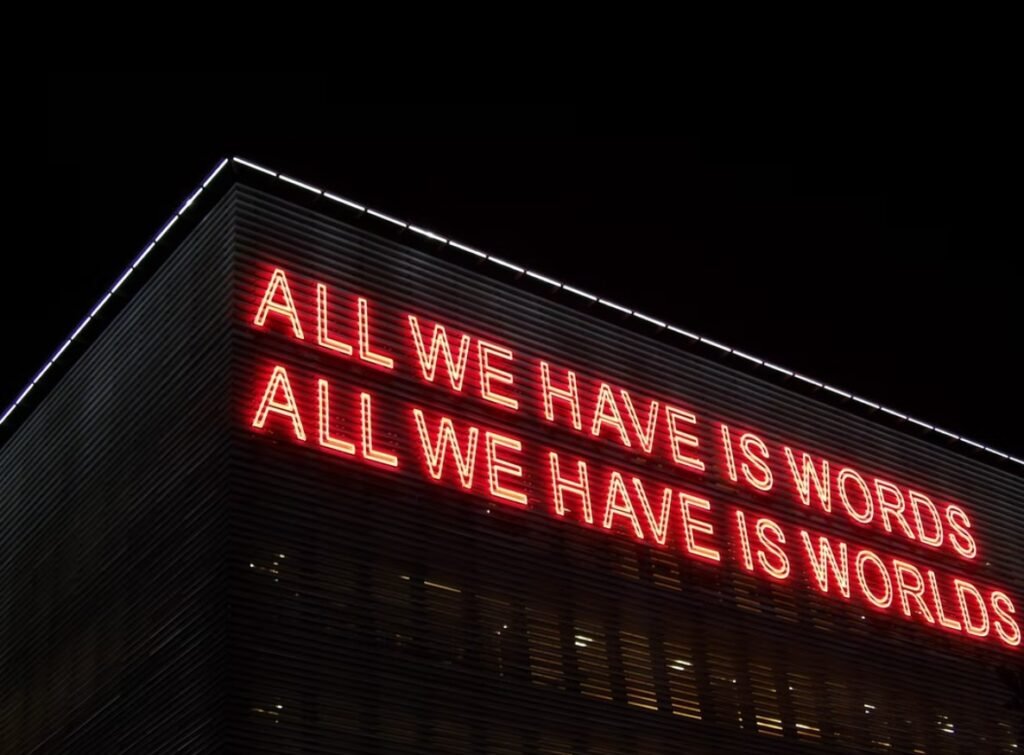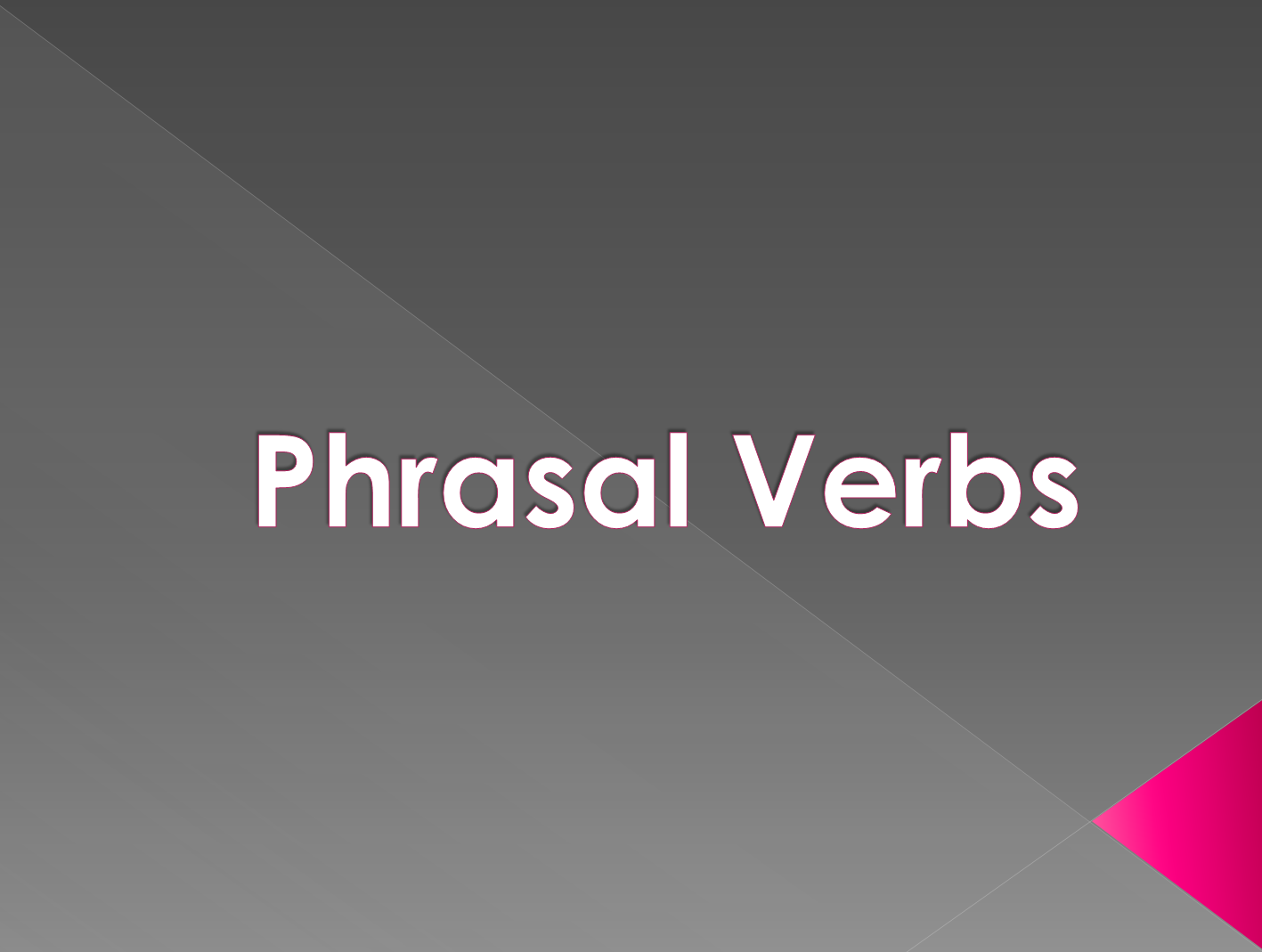
You have certainly practised a great deal to prepare for your actual IELTS exam. You have also been exposed to a variety of materials, and have familiarised yourself with the format of the IELTS test.
Also Read: 7 Effective Strategies For Active Listening
This article, therefore, does not aim at loading you with more materials on IELTS, but it will sum up the mostly used vocabulary words in 11 different categories (People, Social & Leisure, Education, Advertising, Travel & Places, Animals, Technology & Computers, Fashion, City Life, Environment and Media) so as to enable you to work out an effective plan to finally achieve your desired band score in the test.
1. People
- Acquaintance = (n) when you know someone well enough to say hello and talk to them when you see them, but they’re not a friend.
For example: I don’t know her very well, she’s not really a friend, she’s more of an acquaintance. - Sibling = brother or sister
For example: The shop offers a discount for siblings who sign up for store cards. - Characteristic = typical
For example: Adding soy sauce while you’re cooking the vegetables gives the dish its characteristic Vietnamese flavour. - Resemble = when something looks similar to something else, it resembles that thing.
For example: Porche’s new 2020 car model resembles the old 1970s models. - Reliable = something or someone that can be trusted for functional things (something or someone you can rely on).
For example: It’s important for me that my friends are reliable, I don’t like people who are late or who cancel plans at the last minute.
2nd example: My car is very reliable, it has never broken down. - Bond = means a close link or to form a close link if we use it as a verb
For example (noun): I’m very close to my family, we have a very strong bond.
For example (verb): It’s important for people to bond if they work together closely. It’s easier to do this in small offices rather than big offices. This is why I prefer working for small companies, as they tend to have a smaller, friendlier environment. - Conscious = when your conscious of something it means you’re aware of something.
For example: I’m conscious that I will need to work very hard to become a doctor, but it’s my dream and I’m wiling to make the sacrifice. - Inherent = a natural part of something is inherent to that thing.
For example: Getting into a car accident is one of the inherent dangers of driving, so it’s very important that drivers pay full attention on the road so we can minimise the risk. - Self-esteem = the level confidence or belief you have in your own abilities and positive qualities.
For example: Studies suggest that people with higher self-esteem are more likely to be successful in their careers. - Stereotypical = something that fits into the typical ideas about the way it should be.
For example: I want to study accounting, but I don’t think I’m the stereotypical accountant. The stereotypical accountant is a very organised and methodical person who enjoys siting at a desk crunching numbers (making calculations). - Tendency = something that happens repeatedly. Trend.
For example: There is a tendency nowadays to socialise through technology. I think it has some very clear benefits, but it needs to be used in moderation. The benefits are X, Y and Z. However, the dangers are A, B and C. - Gender = the sex of a person.
For example: In my opinion, gender is sadly still and issue we need to tackle in today’s workplace. There are still great disparities between male and female employees in terms of wages and opportunities. - Lifetime = the period of time that something exists or that a person or an animal lives.
For example: Certain types of bird only live in one place in their entire lifetime. - Sympathise = when you sympathise with someone it means that you understand their position and situation. It’s similar to having empathy.
For example: I really sympathise with all the people who lost their jobs, because nobody wants to be in that situation. I think the government can do more to help them at the moment by doing X, Y and Z for example. - Hardwired = instinctive behaviour
For example: I think our desire to improve and grow is hardwired into us as humans, but it needs to be stimulated. This is why I strongly believe that we need to promote real-world, practical education. If people see that they can learn real-world skills, it will encourage them to keep learning. - Habitually = usually
For example: White sharks do not habitually attack humans, unless they confuse them with seals. However, they have a really bad reputation, and I think this has contributed to a lot of shark deaths over the years, as they’ve been actively hunted in many parts of the world.
2. Social and Leisure
- Conform = to follow social rules.
For example: I really admire my father because he refuses to conform to what society dictates. When people told him that he should go to university and study law, he refused. Instead, he started his own business when he had no money and he made it successful through hard work and effort. - Cooperate = when people work well together
For example: It’s important to cooperate with your class mates because it makes projects easier and it helps you learn faster, as you can learn from each other. - Mindset (frame of mind) = the way you think. Your mental attitude at a particular point in your life or in a particular situation./
For example: When you train for an important football match, it’s important to keep a positive mindset and constantly try to make small improvements. It’s important to view your mistakes as lessons rather than failures. - Minority = a small percentage of a group or population.
For example: There is a minority of people who agree with this political party’s policies, but the majority of the population are against them. - Shun = to reject
For example: We can’t shun our responsibility as citizens. We have to be sensible and responsible to prevent dangerous situations like this from happening again. - Conventional = the usual, normal or traditional way of doing something or thinking. ‘Conventional wisdom’ is an expression, meaning: what most people believe to be true, or what most experts accept as the truth.
For example: I live quite a conventional life during the week. I live in a small apartment in the city centre and I work and study most days. However, at the weekends, I work as a magician at private events around the country! I love it because………..
2nd example: According to conventional wisdom in Hollywood, films can’t make a profit unless they have big name actors and actresses and large budgets. I really like films that defy those odds, such as …
- Interaction = communication between people (written, spoken or through sign language for example).
For example: Social media and the internet in general have changed our interactions (the way we interact). - Pressure = stress or expectations.
For example: There is too much pressure on young people today. People expect us to have everything figured out by the time we’re 18, but that doesn’t usually happen. I know people who are in the 40s and are still figuring their life out and deciding what they want to do! - Conduct = This can be used as verb and as a noun meaning behaviour behave. When used as a verb to mean ‘behave’, it is reflexive, meaning it goes with myself, yourself, himself, herself etc..
For example: People judge you based on how you conduct yourself more than on how you dress, even though the way you dress is also a big factor. - Mainstream = common likes or ideas.
For example: My favourite band, the Snake Patrol, were not very well known when they started, but then they released that song ‘Slither in the Wind’ and they became mainstream. Everyone was listening to them. - Appropriate = acceptable or suitable for a particular situation.
For example: Turning up to a formal office job interview in shorts is not appropriate obviously, so they rejected him. This made him re-examine his life. - Multicultural = something that has several different cultures. It can be a team, a department, a city, a country etc..
For example: I really want to study and work in London, because it’s such a multicultural place. I love walking down the street and seeing all the different people from all over the world, or going to the markets and chatting to the locals. - Absorbing = something that entertains you so much, that you forget about everything else.
For example: The film was absorbing, I couldn’t take my eyes off the screen (it had us glued to the screen). From the plot, to the characters and setting, I thought it was all incredible - Exhilarating = something that makes you feel full of energy and excitement. Thrilling.
For example: I found paragliding exhilarating. I was hooked from the first time I tried it. - Indulge = to do something that you like (like a reward).
For example: I decided to indulge myself and had a weekend in New York. - Pursue = to follow an activity in order to reach a goal. Think of chasing your dreams.
For example: I want to pursue a career in engineering. - Tedious = not exciting. Focusing on highly specific but boring things (in the speaker’s opinion).
For example: I find numbers and Maths quite tedious, I’m much more interested in biology. - Trivial = unimportant
For example: Lots of decisions that we think are really important when we’re younger seem trivial when we get older. - Unwind = to begin the process of relaxation after stress or hard work
For example: I usually like to unwind by doing some exercise and meeting up with some friends at the weekend. We have a few drinks and go out for dinner or we watch a film. I also like to unwind at the end of the day by reading and listening to some music. It really helps to clear my mind. - Foster = to protect something and encourage it to grow (an idea, an attitude, a feeling, an action or a result).
For example: The government has introduced policies that foster fair competition among companies.
3. Education
- Theoretical = coming from theories, not practice. It’s another way of saying that something has not been proven in the real world. Theoretical is also used as an adjective to describe something that focuses on abstract concepts rather than practicing a skill.
For example: The idea that time-travel is possible is purely theoretical. We don’t actually know because it is currently impossible to test the theory.
2nd example: I think it’s important to have a theoretical component in a Business course so you can understand certain concepts, but you also need a practical component so you can learn how to implement those concepts in the real world. - Acquire = to buy with money, get by chance or gain through effort.
For example: I recently acquired a new watch, which I have completely fallen in love with! - Valid = acceptable or reasonable
For example: You make a valid point. (This means: ‘What you’re saying is fair’). - Determine = find out, discover or decide after doing research
For example: First, I have to determine whether I should study a Master’s degree or whether I should try to gain more industry experience. - Establish = prove or consolidate
For example: They should establish where the virus came from first, and then establish ways to prevent this from happening again in the future. - Significant = meaningful or important
For example: Talk about a significant day in your life. - Miscalculation = a mistake, using bad judgment or making an error in a calculation.
For example: I think that choosing this venue for the event was a miscalculation on my part, as they were completely unprepared and didn-t offer any of the services they advertised. I really should have checked their reviews first. - Methodical = being organised or careful and patient when you do something.
For example: I think that in order to be as successful as possible at university, you need to be methodical by always keeping an organised Notebook and by always categorising your Notes into sections. - Cram = to overload the brain by trying to learn a lot in a short period of time.
For example: I always say that I’m going to be really organised for my tests, but I always end up cramming it all in at the last minute! - Compulsory = obligatory, something you HAVE to do
For example: I believe that it should be compulsory to have some sort of ractical training as part of your degree. I think that getting industry experience is vital in today’s job market.
4. Advertising
- Persuade = convince someone of something
For example: The role of advertising is to persuade customers to buy products they don’t necessarily need. - Unavoidable = certain to happen
For example: If you allow advertisers to promote gambling, people will gamble more. It’s unavoidable. - Effective = when something achieves its purpose
For example: effective advertising sells products and creates brand awareness. - Ploy = trick
For example: Shops use special discounts as a marketing ploy to encourage people to go into their shops and buy other products. People go into the shop for the discount and end up buying products that are not on discount. - Intrusive = invasive
For example: I find intrusive advertising like internet popups and cookies really annoying - Hype-up = a phrasal verb meaning to exaggerate for a commercial or public relations interest
For example: It’s important to ignore the hype when you’re trying to choose a good restaurant - Endorse = officially recommend a product or a company
For example: Nike are endorsed by famous professional footballers all over the world. - Gullible = too trusting or easy to trick
For example: I think we are all quite gullible as consumers. We often believe companies just because they advertise on TV. - Prominent = noticeable or extraordinary
For example: A prominent marketing guru argues that all publicity, whether it’s positive or negative, is actually good for a company. - Entice = tempt by offering something
For example: Fast food companies entice us with adverts of delicious looking food, but when you actually try it, it’s often disappointing. - Bombard = continuously direct something towards someone
For example: We are constantly bombarded with adverts every day on TV, online, on the radio, in newspapers and even on the street. It seems like everywhere we look there’s an advert. - Inescapable = something you can’t avoid.
For example: It seems like everywhere we look there’s an advert, it’s inescapable.
5. Travel and Places
- Memorable = something special or unforgettable
For example: Traveling round America with my family was a memorable experience. We managed to visit six states in total and did an amazing road trip down Route 66. - Custom = a local tradition or habit
For example: It’s a custom to eat cheese and cold-cuts in Mediterranean countries such as Spain and Italy. - Remote = isolated or far away
For example: During our trip to Thailand, we visited a remote island just off the coast of Phuket. It was spectacular. - Spectacular = stunning, amazing or very impressive
For example: When I visited Bangkok, I ate the most spectacular food and the temples were absolutely stunning. - Landscape = large natural area of land
For example: The South of Spain has some amazing landscapes. In some areas, you can go skiing in the mornings and then go to the hot beach in the afternoon. It’s stunning. - Basic = simple, not complicated or luxurious. (Often used to describe accommodation)
For example: Our hotel was really basic, but we only used it as a place to sleep. We spent most of our time outside, exploring the city and going on guided tours. It was an amazing experience. - Barren = without vegetation
For example: The landscape is quite barren, but it’s stunningly beautiful. The sunsets in particular are amazing. - Wander = walk without a specific destination
For example: On our first day in Berlin, we wandered round the city and explored different markets and bars around the centre.
6. Animals
- Endangered = a species of animal or plant that’s dying.
For example: The Mountain Gorilla is one of the most critically endangered animals on the planet. - Venomous = poisonous
For example: Many people assume that most snakes are poisonous, but of the 3,500 snake species around the world, only 600 are actually venomous. - Domesticated = trained to live with humans in houses instead of in the wild.
For example: I think it’s important to remember that not all animals can be or should be domesticated. I honestly believe that people should not be allowed to have pets like snakes, birds or monkeys. It’s cruel and potentially dangerous in my opinion. - Thrive = grow strong
For example: While many animals are already facing and will continue to face serious problems due to global warming, some species will actually thrive on a warming planet. - Vulnerable = something that can be hurt or that is in danger.
For example: Scientists recently created the largest botanical dataset ever, and discovered that almost 40% of plant species that live on land are potentially vulnerable to global warming. If we don’t make radical changes now, we risk losing these species in the next few years. This will be carry disastrous consequences for human beings. - Dwindle = shrink in numbers, become fewer or weaker
For example: Higher penalties could stop smugglers, protect public health and help preserve dwindling species such as tigers. - Habitat = Natural environment of an animal or plant species.
For example: The large human presence in the area has had an negative effect on fish habitats. - Survival = continuing to exist
For example: We must put stricter systems in place in order to ensure the survival of species such as chimpanzees, mountain gorillas and orangutans. - Co-exist = live in the same time or place
For example: Humans can co-exist with plants and other animals, we just need to see it as a major priority. I strongly believe that in ten or twenty-years-time it will be too late to reverse the effects of global warming. We must act now; our survival depends on it.
7. Technology and Computers
- Virtual = in a computer or simulation, not in the real world
For example: I know it’s a bit of a cliché, but I still believe that virtual reality is the future of entertainment. - Digital = computerised rather than physical. Often used to refer to information and information products.
For example: Sales of digital books, or e-books, have been rising steadily for years now. - Embrace = happily accept
For example: However, not everyone has embraced this new era of reading on your phone or on other electronic devices. Many people still prefer to read books the traditional way. - Addictive = when something makes people want more and more
For example: I think that as a society, we’re not paying enough attention to the fact that technology is very addictive. While it can be extremely beneficial, there are also many potential drawbacks. - Security (Secure) = Safety (Safe)
For example: Data security is a massive issue at the moment, and rightfully so. Companies hold a lot of information about us, and it would be dangerous in the wrong hands. - Cutting-edge = the newest or most advanced technology, design or method.
For example: My favourite possession is my new phone. I bought it last week. This particular model contains a cutting-edge processor which makes it 50% faster than the previous model from the same brand. I also love the design, as it’s sleek and robust at the same time. - Cyberbullying = attacking other people online
For example: Cyberbullying is a huge issue nowadays, because victims cannot escape the bullying. - Technological = relate to technology
For example: The technological era has brought many benefits to our lives. In my opinion, it has massively improved human interaction by providing us with more options to connect with people from all over the planet and to keep in touch with family and friends when we’re far away - Dated = not relevant or true anymore because things have changed
For example: It would be an absolute game-changer if the government could introduce a policy of upgrading dated technology with cuttingedge energy efficient models, improving performance and energy consumption. - Domestic appliances = machines we use in our homes ‘White-goods’, means domestic appliances like washing machines and dishwashers, but doesn’t usually include devices like blenders or air fryers for example.
Domestic appliances are a multi-billion-dollar industry. Although many of them are extremely handy, we often end up buying devices we don’t need and that don’t even make our lives any easier. - Surpass = Be or do more than. Do something better than or be better than. Be bigger than, higher than, faster than etc.
For example: As humans, we continually strive to surpass what we can do and what we think is possible. I think it’s mind-boggling to think about the technology we might have in 1-200 years, and the things that will be possible in 500 years. It just blows my mind! - Upgrade = get a better-quality version of something
For example: We decided to upgrade our kitchen, replacing all of our outdated appliances with new cutting-edge ones. - Innovative = creative and new
For example: I believe that some of the most innovative inventions in human history have been born out of pure necessity. It’s a total cliché, but necessity really is the mother of invention.
8. Fashion
- Shoppers = people who buy from retail stores.
For example: Why do some people enjoy clothes shopping? - Passing = short. Something that will disappear quickly
For example: I really hope responsible fashion isn’t a passing trend. I hope that the top brands in the industry will take a more active role in the near-future, as more people recognise the importance of being environmentally-conscious. - Trendy = fashionable
For example: I believe that some people choose clothes only because they are trendy, but I don’t think most people do that. I think most people choose the clothes they like within the current trends. - Impulsive = an action carried out without thinking. Or a person who doesn’t think before acting.
For example: Impulsive buying is a habit that I would like to stop! Whenever I go to a shopping centre I always end up buying something. I find it really hard to resist! - Consumerism = the behaviour or culture of buying things we don’t necessarily need.
For example: I think consumerism is mostly negative, because it makes us focus on things that aren’t important. Many people put more time and effort into obtaining material possessions than they do into improving themselves as human beings. - Purchase = in the noun form, this means something that has been bought. In the verb form, it means ‘buy’.
For example: The most memorable thing I’ve ever purchased is my car. It gives me independence and freedom so I can go wherever I want. It allows me to study and work and it allows me to visit my friends and family. Having it has completely changed my life for the better.
2nd example (verb): I had to borrow money to purchase my first car.
9. City Life
- Inadequate = not good enough
For example: Half of the city’s population live in inadequate housing. The conditions are quite bad for these people, as most of them don’t have running water. - Transportation (transport) = the type of vehicle you use to travel
For example: Public transport in my home town is great. There are buses every fifteen minutes and train lines every twenty minutes. You can be anywhere in town within twenty minutes. - Pedestrian = person walking on the street
For example: I found Amsterdam to be very pedestrian-friendly, as there are very few cars, and the bikes there are quite respectful of the people walking around. - Commute = In the noun form, this means your journey to school or work. In the verb for, it means to travel to work or school.
For example: I have to commute for one hour every day to get to class! - Pavement = the place where pedestrians should walk on the street (not the road).
For example: The pavements are quite run-down in my neighbourhood, but the council don’t have enough money to fix them. - Slums = very poor-quality housing, often without running water or electricity.
For example: One third of the people in the city live in slums. They don’t have electricity or running water. - Infrastructure = services and basic structures in an area. Infra- means ‘below;’ so the infrastructure is the ‘basic structure below’ a country, an economy, a business or an organisation.
For example: More funding is required to boost the crumbling infrastructure of the country’s production plants. - Overpopulated (overpopulation) = when there are too many people in an area.
For example: The overpopulation in urban areas has led to an increase in pollution and inadequate housing among other issues. This is something that needs to be addressed sooner rather than later. - Outskirts = the edge of a city, town or village.
For example: I grew up on the outskirts of the city, but I moved closer to the centre when I started working. The commute was just too long to do every day! - Isolated = separated from others
For example: When I travelled round Mexico, I visited an isolated community in the middle of the desert. It was really interesting. Most of the people there had never seen a foreigner before, so they were really curious. They were so welcoming and kind that I actually felt a bit sad when I had to leave. - Inequality = The opposite of equality. Disparity or imbalance in something. Often used to talk about people’s rights or living standards.
For example: John Milton proposed a new system designed to remove inequalities in health care but it was rejected by his own political party. - Overwhelmed = unable to deal with a situation
For example: The healthcare system was initially overwhelmed by the sheer number of infections. - Shortage = a lack of something
For example: Water shortages cause major problems in some areas of the country. - Affluent = rich / wealthy / prosperous
For example: I really admire my uncle Bob, because he grew up in a very deprived area, but he managed to set up several businesses and he now lives in one of the most affluent areas in town. I admire his drive and ambition, as well as his creativity. - Run-down = when talking about things it means old and neglected. When talking about humans, ‘run-down’ means tired-looking or looking slightly ill.
For example: Some parts of my city are quite run-down, but the centre is very nice to walk around and has……..
10. Environment
- Agricultural= connected to raising animals for food and growing fruits and vegetables by cultivating the soil and producing crops.
For example: I grew up in an agricultural community so farming was still in my blood. - Renewable = something that can be produced again and again
For example: Trees are renewable natural resources, but they should be treated with extreme care. - Logging = systematically cutting down trees
For example: Logging is a major issue in many forests and jungles all over the world. As more trees are chopped down, these natural areas are shrinking more and more. - Vital = essential for the existence of something
For example: Trees are vital for the environment. - Irrigation = systems to supply areas with water.
For example: Lack of investment in new methods may result in deterioration of the irrigation system in the area and a subsequent decline of the local economy - Pressing = urgent
For example: There is a pressing need for housing in the area. - Pollutant = a substance that contaminates
For example: The most dangerous gaseous air pollutants released into the air in urban areas are Sulphur dioxide, nitrogen dioxide, and carbon monoxide; - Ecosystem = the environment in an area and all the biological life in it
For example: Half of these trees could be gone within five years, threatening jobs and ecosystems. - Unprecedented = something that has never happened before
For example: Governments were not sure how to deal with the situation because it was unprecedented in 21st-century life. - Safeguard = protect against something
For example: We must safeguard the environment against the destruction of habitats and the over-exploitation of natural resources such as fresh water and fisheries among other issues.
11. Media
- Tabloid = newspapers that are not as serious and impartial
For example: The President’s blunders gave the tabloid press great satisfaction. - Impartial = neutral
For example: A judge has to be fair and impartial, or the law loses all meaning. - Biased = not neutral or impartial
For example: The tabloid press gave a very biased account of the situation. - Escapism = a noun to describe when you use something to forget about normal life and escape your problems.
For example: For many people watching fantasy series and films on Netflix or on TV is a form of escapism. - Medium = singular noun for media. Media is plural (most people don’t realise).
For example: Interactive series and films open up the medium of video platforms to the participation of viewers. - Well informed = having enough high-quality information to understand and make good decisions
For example: Consumers need to be well informed about the side effects of so-called natural remedies. - Scrutinise = examine or analyse carefully
For example: It’s important to scrutinise politicians to ensure that they are honest and trustworthy. - Censor = to remove parts of what is said or published in the media or in any form of communication because you don’t want someone to see, read or hear that information.
For example: I completely disagree with any initiatives which aim to censor the Internet in any way, shape or form. - Manipulate = to control someone or something indirectly (has a negative connotation)
For example: I think the government and the media manipulate us in many ways. They report the news the way they want us to see it. - Spotlight = public attention / publicity / limelight / being in the public eye
For example: I think many celebrities struggle with living their lives in the spotlight. It must be very hard to have every part of your life scrutinised by strangers. - Imply = to suggest something without saying it directly
For example: The media implied that there had been a cover-up. They never said it directly, but it was the logical conclusion from the way they reported the whole story.
- Idioms and Other Expressions Used For Talking About ‘Work’
- What Are Weasel Words?
- Money and Finance – Test Your Knowledge
- Phrasal Verbs, Idioms and Other Expressions Using ‘CUT’
- How to Say Time in English
- Idioms and Other Expressions Used For Talking About Money
- Shopping and Consumerism – Match the Correct Name
- Phrasal Verbs – Choose the Correct Verb
- Currency Markets – Choose The Best Words
- Personal Qualities – Use the Best Nouns and Adjectives








